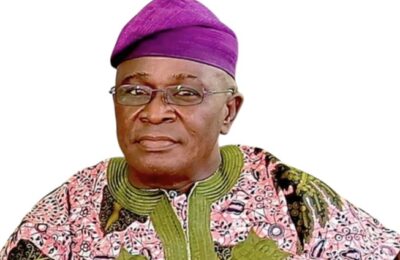As Nigeria awaits the Supreme Court’s verdict on the landmark case of SC 1/2008, the nation holds its breath. At stake is the future of lottery regulation and revenue collection, with far-reaching implications for national development.
The case pits the Attorney General of Lagos State and 21 other states against the Federal Government, sparking intense debate. Proponents of state autonomy argue that lottery regulation should rest with individual states, while federal authorities insist on their constitutional mandate.
The case is a contentious issue that has been argued and awaits judgment from the Supreme Court. At its core, this case revolves around the regulation and revenue collection of lottery activities, with the Attorney General of Lagos State and 21 other states contesting the Federal Government’s involvement as unconstitutional.
Proponents of state autonomy argue that lottery regulation should rest with individual states. They claim that since lottery is not explicitly mentioned in either the Exclusive or Concurrent list of the 1999 Constitution, the Federal Government has overstepped its bounds by regulating and collecting revenue from lottery activities. The states assert that this encroachment infringes upon their rights to manage their own affairs.
On the other hand, federal authorities insist on their constitutional mandate. They argue that the National Lottery Regulatory Commission and the National Lottery Trust Fund have sole authority over gambling. The Federal High Court has already ruled in favor of the federal regulator, acknowledging its critical role in ensuring fairness and transparency.
However, experts contend that federal involvement ensures fairness and transparency. “Without federal oversight, lottery operations would become a free-for-all,” warns Dr. Emmanuel Akintade, a gaming industry analyst. “This would lead to exploitation and undermine public trust.”
The federal government’s power over lottery is essential for several reasons, all interconnected to ensure a fair, transparent, and regulated industry.
The federal government’s role in standardizing and transparentizing lottery operations protects players and stakeholders from potential exploitation. The National Lottery Regulatory Commission sets standards, guidelines, and rules for lottery operations, promoting fairness and integrity.
The federal government’s oversight of lottery activities has yielded substantial revenue, which the National Lottery Trust Fund (NLTF) has strategically utilized to support various good causes across Nigeria. This impactful initiative has benefitted numerous communities nationwide, focusing on vital sectors.
The NLTF has made significant contributions to healthcare by providing medical equipment, infrastructure, and services to healthcare facilities, enhancing access to quality healthcare for millions. Additionally, it has developed sports infrastructure, promoted grassroots programs, and supported athletes, fostering a culture of fitness and excellence.
In education, the NLTF has renovated schools, supplied educational materials, and offered scholarships, empowering future generations. Environmental conservation projects have also been implemented, addressing pressing environmental challenges.
Humanitarian assistance has been provided to vulnerable communities, disaster victims, and internally displaced persons. The NLTF’s contributions have positively impacted countless lives, demonstrating the lottery’s potential to drive meaningful change.
Some notable NLTF-funded projects include construction of healthcare facilities in rural areas, provision of educational resources to disadvantaged schools, implementation of environmental conservation programs, and emergency relief interventions for disaster-affected communities.
Federal oversight also safeguards players’ interests, ensuring lottery operators comply with regulations and maintain fair business practices. The National Lottery Regulatory Commission provides a platform for players to report complaints and resolve disputes, preventing illegal lottery operations that undermine the industry’s integrity and deprive the government of revenue. The commission collaborates with law enforcement agencies to clamp down on illegal operators.
A centralized regulatory body ensures consistency across states, preventing conflicting regulations and ensuring a level playing field. This coordination facilitates information sharing and best practices among states, aligning Nigeria’s lottery industry with international standards. The federal government’s guidelines and policies promote transparency, accountability, and fairness.
A well-regulated lottery industry creates jobs and stimulates economic growth. Federal involvement attracts investors and promotes related industries’ development. By exercising its power over lottery, the federal government ensures a fair, transparent, and regulated industry benefiting players, stakeholders, and the nation. This is the practice all over the world and Nigeria should not be an exception.
The federal government’s lottery revenue funds national development projects, such as education, healthcare, and infrastructure. The National Lottery Trust Fund supports good causes, including investments in education, health, sports, environment, agriculture and humanitarian. This integrated approach ensures that the lottery industry contributes to Nigeria’s overall development.
Ultimately, the federal government’s role in lottery regulation strikes a balance between economic growth, player protection, and national development, fostering a thriving industry that benefits all stakeholders.
A Revenue Assurance Platform, as proposed by the Federal Executive Council, would curb corruption and unlicensed operators. A Revenue Assurance Platform offers real-time monitoring and automated reporting, making it more efficient than the usual monitoring systems. This technology enables regulators to track transactions, detect suspicious activities, and prevent revenue leakage. By adopting such a platform, Nigeria can align with international best practices in gaming regulation.
Rather than scrapping the Lottery Commission and Trust Fund, all stakeholders should work together. “A unified approach would facilitate effective regulation, benefiting the industry and stakeholders,” says Lagos State Gaming Board CEO, Mr. Bashir Abiola.
The Federal Government’s continued involvement would generate jobs and stimulate economic growth.
As Nigerians await Supreme Court judgement, Nigeria’s development hangs in the balance. Scrapping the Lottery Commission and Trust Fund would undermine progress and create uncertainty.
Preserving the Lottery Commission and Trust Fund is essential for Nigeria’s development as the same Supreme Court panel did in judgement against states on the legality of Economic and Financial Crimes Commission yesterday. I must commend the panel for that judgement which is similar to the lottery one.
Federal authority ensures transparency, revenue generation, and economic growth. As the nation awaits the Supreme Court’s verdict, one thing is clear: continuity, not disruption, is the key to a thriving lottery industry.
– Mohammed Hamisu wrote from Kaduna Nigeria.




